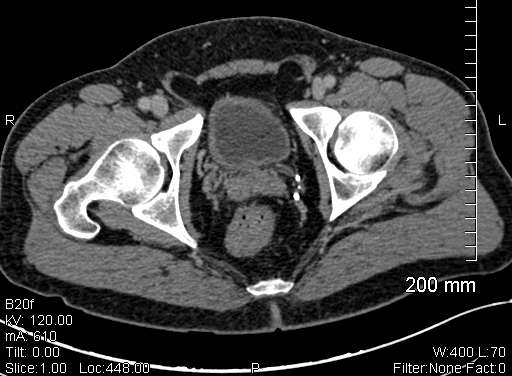
March 13, 2013 — The March 2013 issue of the Journal of Urology, publication of the American Urological Association, includes a study conducted by four physicians from Radiotherapy Clinics of Georgia (RCOG), a Vantage Oncology affiliate. The study, 25 Year Disease Free Survival Rate after Irradiation of Prostate Cancer Calculated with the Prostate Specific Antigen Definition of Recurrence Used for Radical Prostatectomy, is the first to analyze 25 years of follow-up data after radiation therapy treatment for prostate cancer patients.
Frank Critz, M.D., founder and medical director of RCOG, the largest community-based prostate program in the United States, co-wrote the study along with three other RCOG physicians, James Benton, M.D., Philip Shrake, M.D., and Mark Merlin, M.D. The prostate program at RCOG is the only program of its kind to have gathered and maintained a clinical records database for all patients over a 30-year period in a consistent and comprehensive manner.
"This study, the longest after irradiation of prostate cancer, confirms using the surgical PSA definition (PSA <0.2 ng/ml) that results from this program are equal to that of radical prostatectomy, thus giving men a choice of treatment and, after 15 year follow-up if the PSA is <0.2, late recurrence will be rare."
The study follows 3,546 men with prostate cancer, treated with prostate seed implants followed by external beam radiation therapy (EBRT). None of the men included in the study received pre-treatment hormone therapy. The implant procedure used in these patients was updated in 1992, given improvements in treatment techniques. From the sample, 73 percent had no evidence of prostate cancer 25 years after the irradiation program.
To compare like populations, this study compares patients treated between 1984 and 2000 to two previous studies that looked at patients who had surgical radical prostatectomy. The 15 years of follow-up data for these three studies calculated disease-free survival (DFS) based on a PSA<0.2 ng/dl. The surgical definition is much stricter than the one usually used in radiation therapy studies. Results of these three studies showed comparable DFS at 10 (75 percent, 77 percent and 77 percent) and 15 years of follow-up (73 percent, 68 percent and 75 percent) respectively, showing that prostatectomy and the combination of seed implant followed by EBRT are equally effective. A sub-analysis of patients treated with transperineal implants and EBRT between 1995 and 2000 in the RCOG study showed a 15-year disease-free survival of 79 percent.
A secondary analysis in this publication includes more than 300 men, treated 16 to 25 years ago, whose prostate cancer recurred after treatment. Recurrences were PSA-defined, and results showed the majority of recurrences happened within the first five years after treatment and no recurrences 15.5 to 25 years after treatment. This is the first to include interval-censoring analysis when looking at time to recurrence.
The study concludes that follow-ups are necessary for 15 years after treatment to fully evaluate any treatment for prostate cancer. If a man's PSA is <0.20 ng/ml 15 years post-treatment, later recurrence of the disease should be rare.
For more information: www.curingprostatecancer.com, www.rcog.com, www.jurology.com


 January 30, 2026
January 30, 2026 









